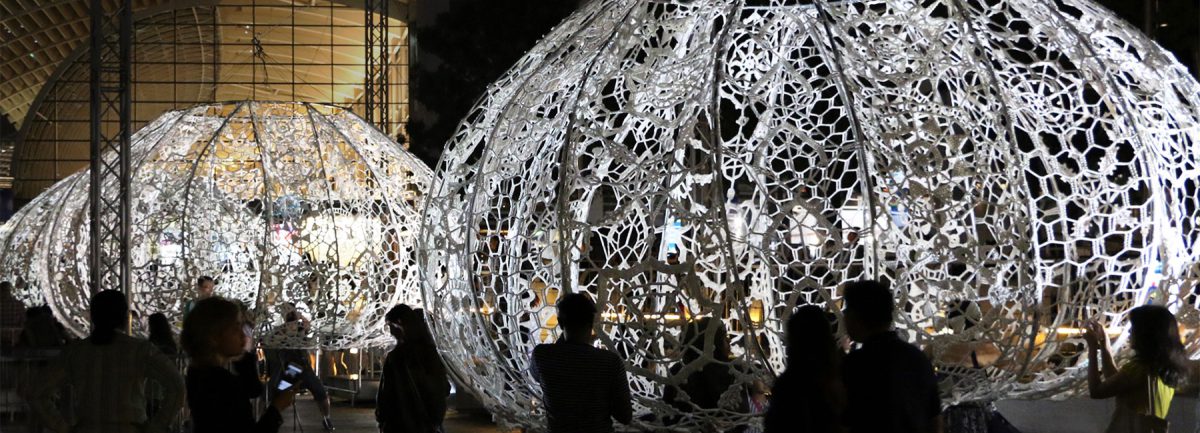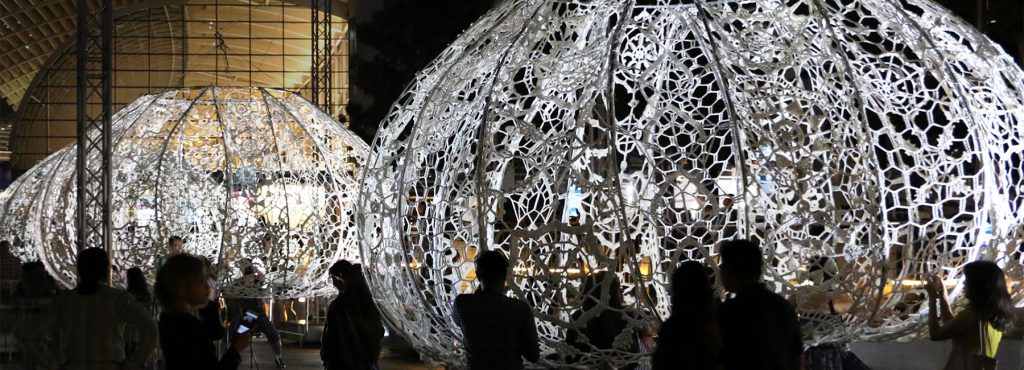Sustainability to me means the ability to be maintained at a certain rate and to use minimal energy while producing the best results. It also means for something to be able to withstand a long period of time and to be able to be passed down from generation to generation, for example an authentic piece of wooden furniture, a technology or design that is able to be relevant in the present as well as in the future. In the iLight festival, I find it interesting to combine the use of light and art to get people engaged and become more aware of the importance of sustainability. This method is more influential in the future generations, as we value art and design more than the older generations in Singapore.
The Urchins (iLight Festival 2017), is one of my favourite pieces this year. Using traditional methods of crocheting, the results of the surface is intricate yet it creates a sense of harmony and tranquility. In the day, the interaction with natural light causes a play between the physical object and the shadow that is casted on the floor. It absorbs sunlight, and retransmits and reflects it. At night, the Urchins illuminate and glow, creating a sense of enchantment and magic. The glow at night are created by spotlights, which shines onto certain parts of the surface and the rounded shape of the object and material of the surface (white double braided polyester cord) causes light to bounce and reflect within themselves, which makes the objects seem brighter than they actually are. The designers behind the Urchins have been successful in using minimal energy and light while at the same time producing maximum luminosity, and also incorporating sustainability with art.


